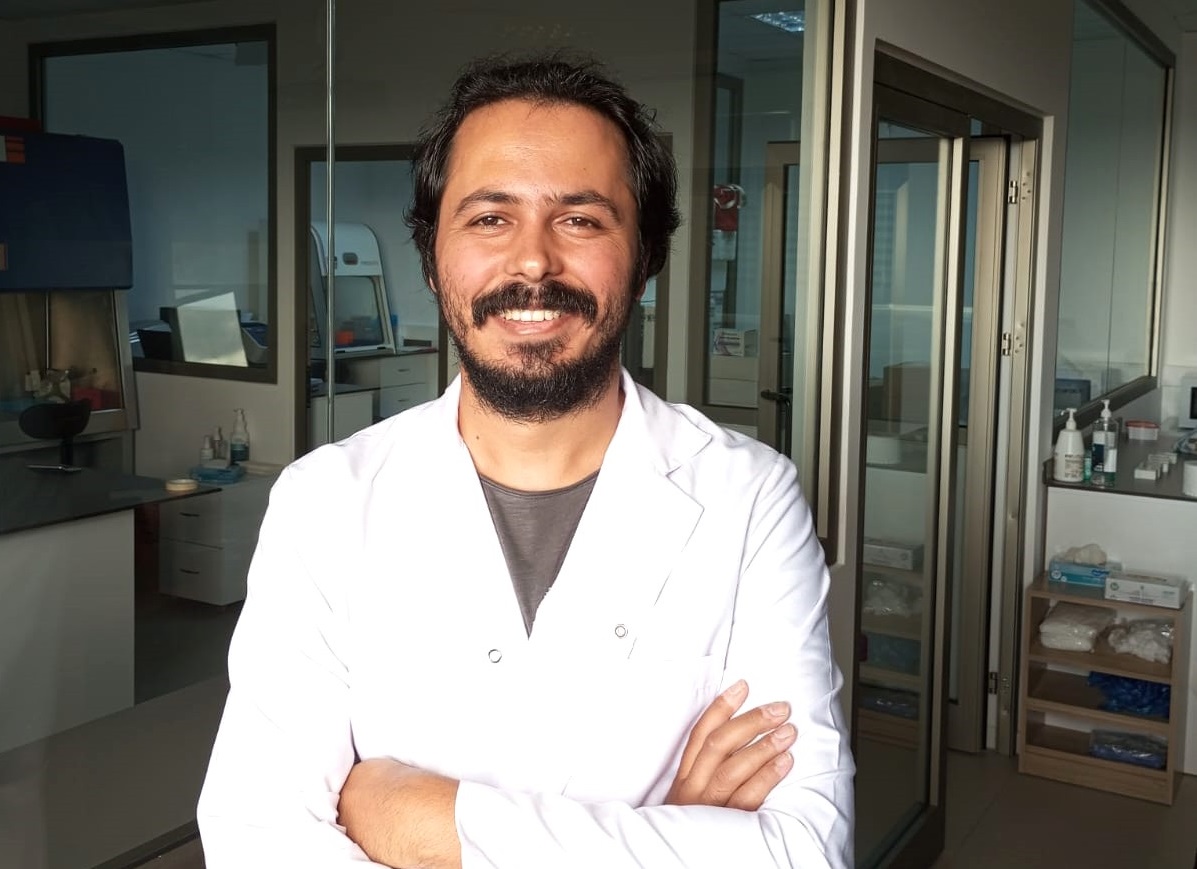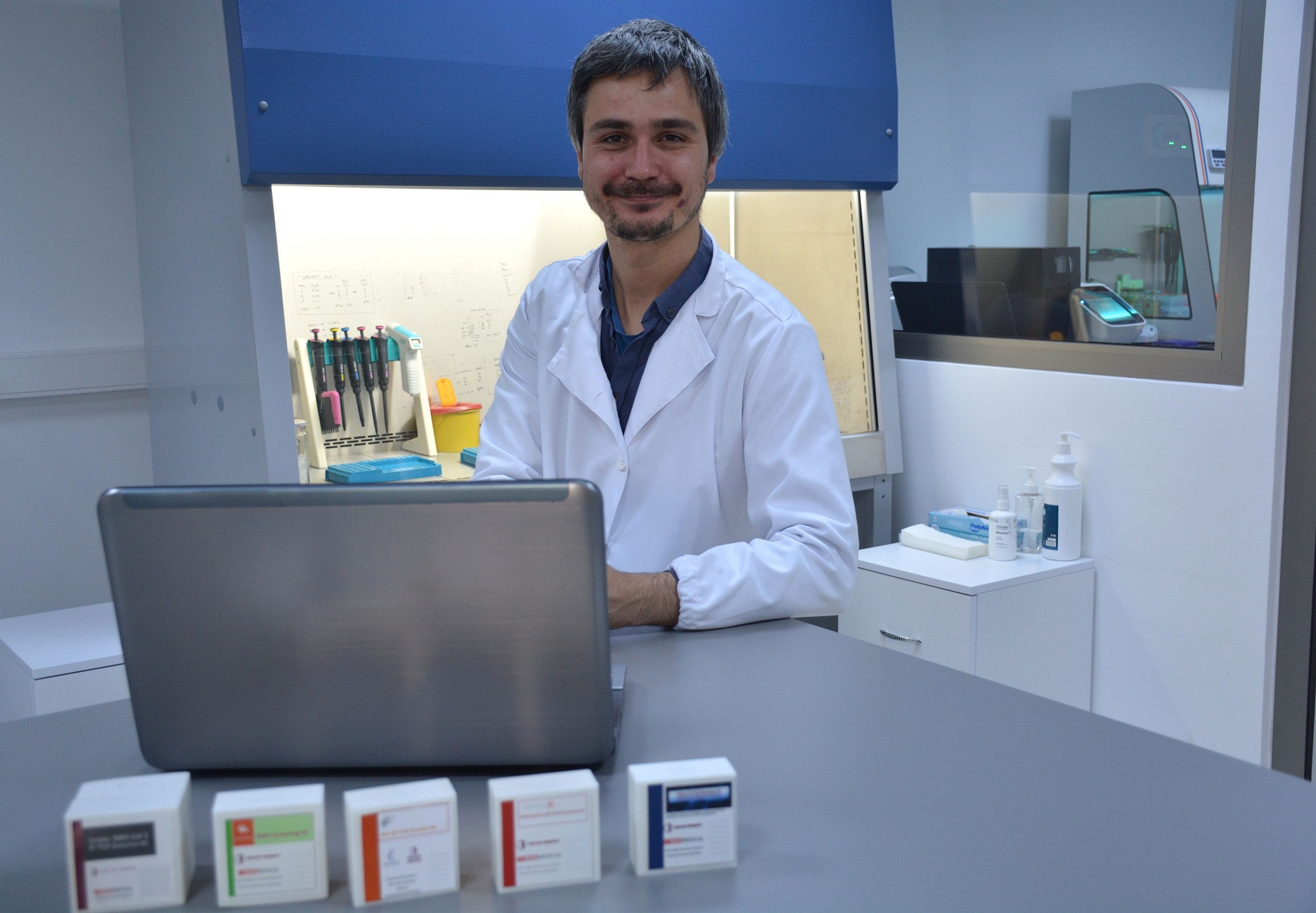
Near East University researchers investigated the risk of transmission of the feline coronavirus, which is estimated to cause many cat deaths in Cyprus in 2023, to humans. Researchers, who revealed 11 different new subtypes in a computer environment using the FCoV-23 viral genome sequence, announced that the risk of transmission of cat coronavirus to humans is very low.
Feline coronavirus (FCoV-23), which is estimated to have caused the death of many house and street cats in Cyprus in the last year, continues to be one of the important agenda items, although its prevalence has decreased. The first question in mind is whether there is a risk of transmission to humans. In the first days of 2024, Near East University DESAM Research Institute researchers, who developed a PCR kit to be used in the detection of cat coronavirus, revealed the answer to this question with their analysis using the FCoV-23 viral genome sequence.

Near East University DESAM Research Institute researchers Dr. Ahmet Çağlar Özketen and Dr. Hasan Hüseyin Kazan modeled the possible infection of FCoV-23 to humans at the protein level in a computer environment. Researchers examining the interaction of FCoV-23 with target proteins in humans revealed how possible mutations in the virus could change this interaction.

The risk is very low!
Emphasizing the importance of determining whether the new cat coronavirus type (FCoV-23), seen throughout the island, can be transmitted to humans, Near East University researchers Dr. Ahmet Çağlar Özketen and Dr. Hasan Hüseyin Kazan said, “It was necessary to reveal the interaction of the protein binding region of FCoV-23 with the human APN protein. Our modeling studies carried out in the computer environment showed that the protein with the FCoV-23 sequence does not interact with the human APN protein.”
The researchers also warned that the mutations of the current virus may pose a risk of transmission to humans and said, “When 11 different artificial mutations were created on the current genome sequence of the virus, we revealed that an artificial subtype with 5 mutations could interact with human APN. However, the low mutation rate of the viral genome and the possibility of 5 different definitive mutations indicate that the risk of transmission to humans is currently very low.”

Prof. Dr. Tamer Şanlıdağ: “With our research, we aimed to eliminate the question marks by determining the effects of the cat coronavirus epidemic seen throughout the island on human health.”
Near East University Rector Prof. Dr. Tamer Şanlıdağ, who is also a medical microbiology expert and led the study, made a statement about the study. Prof. Dr. Şanlıdağ emphasized that epidemics that pose significant risks to animal health may also pose a risk to human health due to the possible risk of contamination they carry. Prof. Dr. Şanlıdağ said, “With our research, we aimed to eliminate the question marks by determining the effects of the cat coronavirus epidemic seen throughout the island on human health.”
“The modeling studies we have carried out reveal the risk of transmission of FCoV-23 to humans, with possible mutations simulated in the computer environment. However, the probability of this risk occurring is quite low due to the estimated mutation rate and the large number of mutation associations.” saying Prof. Dr. Şanlıdağ, made further comments on the issue “In order to determine the real mutation rate in the viral genome, sequencing the positive cases we detected with the screening kit we developed will be among our most important studies in the coming days. Nevertheless, the fact of interspecies transmission of coronaviruses always carries the risk of transmission to humans due to unpredictable factors. Therefore, caution should be exercised when interacting with animals.”

Assoc. Prof. Dr. Cenk Serhan Özverel: “As Near East University DESAM Research Institute, we continue to closely monitor many viruses that may threaten the health of living things.”
Near East University DESAM Research Institute Director Assoc. Prof. Dr. Cenk Serhan Özverel reminded that they have recently developed a PCR kit for the detection of cat coronavirus, which has become one of the important agendas throughout Cyprus, and said, “Following our PCR kit, which can accurately determine the detection of FCoV-23 within 3 hours, we have also completed our study evaluating the risk of transmission of the disease to humans.” .
Assoc. Prof. Özverel emphasized that the study completed by Near East University researchers is extremely important in terms of responding to the concerns of the society as well as being prepared for a possible epidemic caused by cat coronavirus. Assoc. Prof. Dr. Cenk Serhan Özverel said, “As Near East University DESAM Research Institute, we continue to closely monitor not only the cat coronavirus but also many viruses that can threaten the health of living beings.”